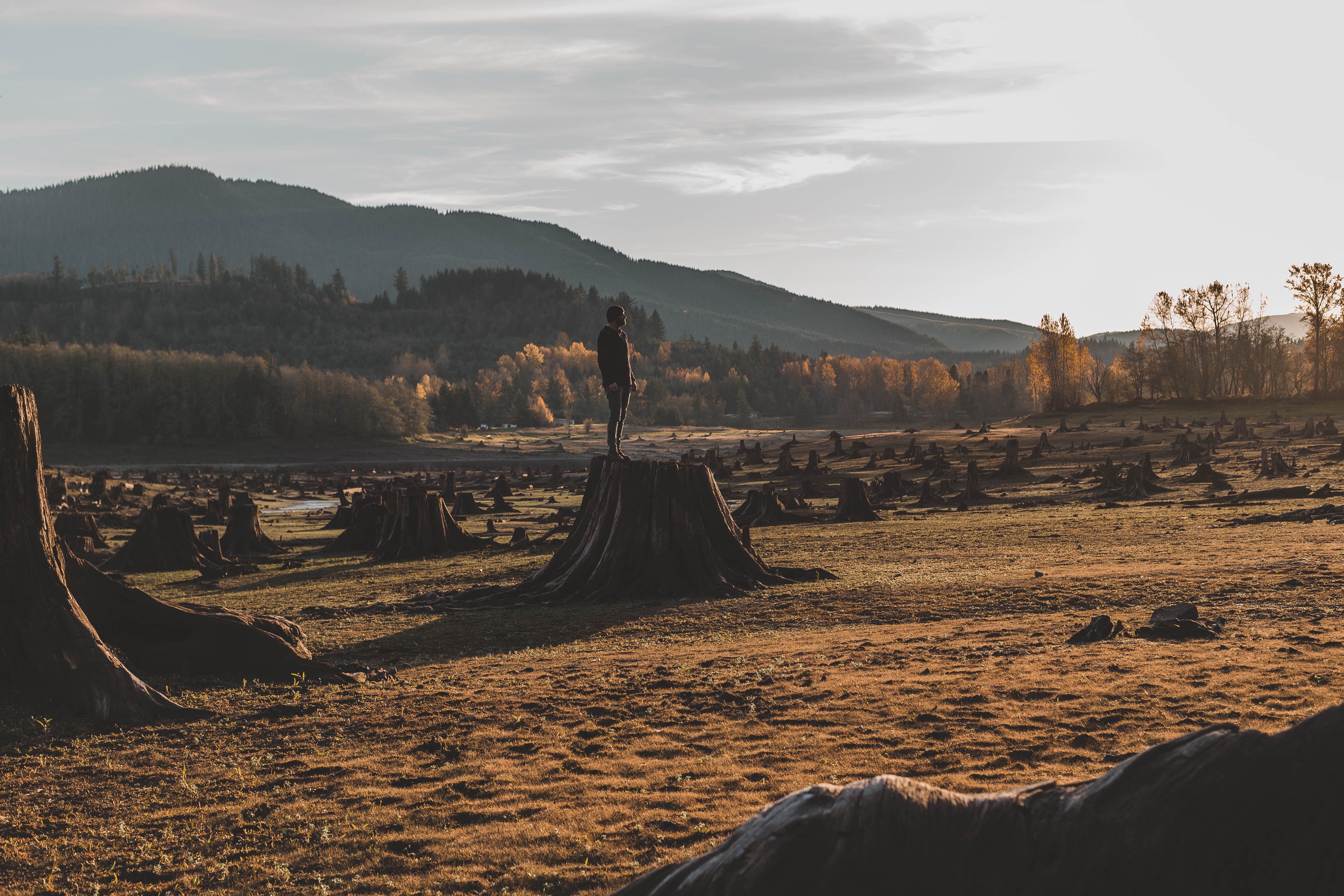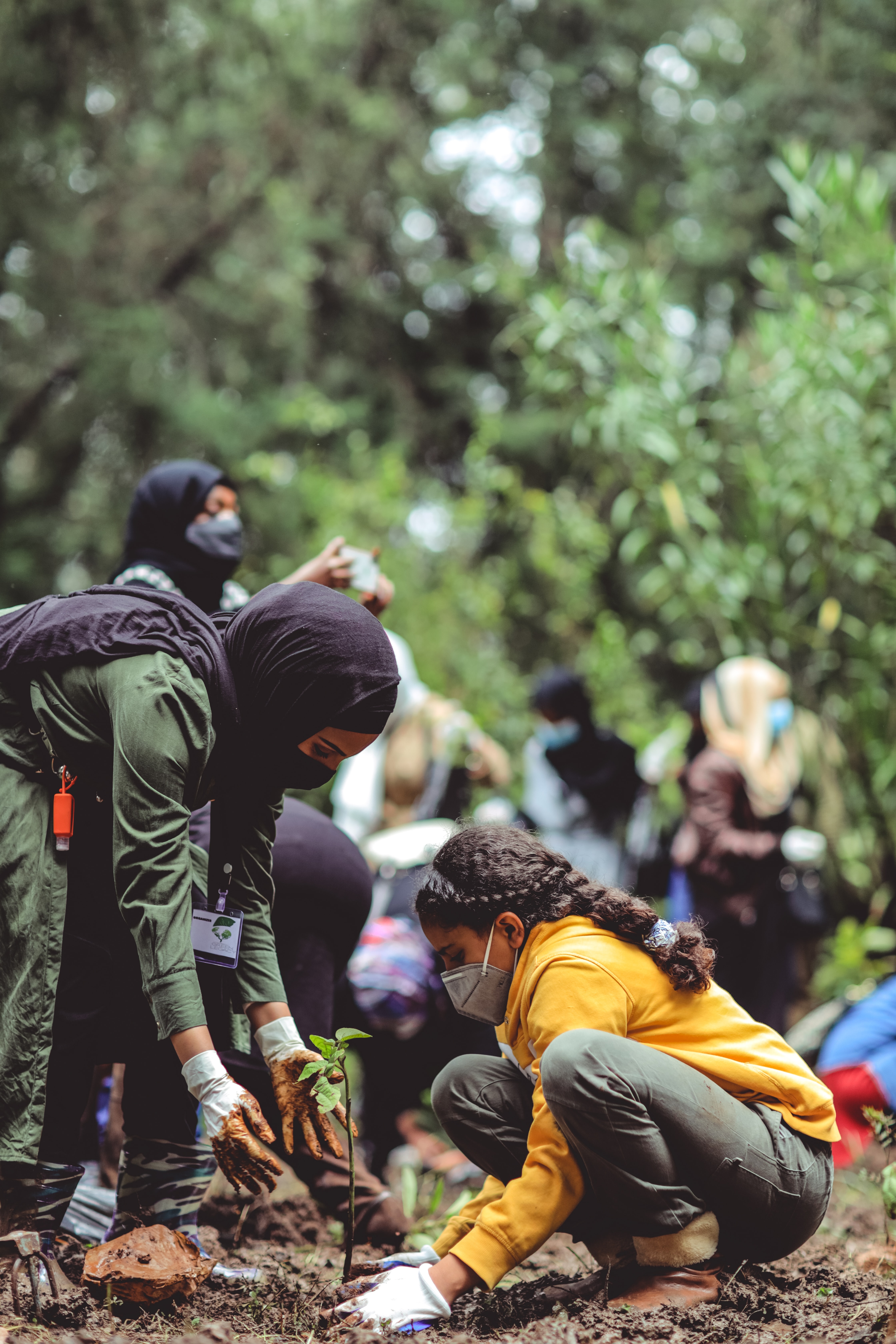As COP26 has come to a close, a number of important challenges were debated and pledged to be solved in order to limit the climate crisis, one being global deforestation. Deforestation has clearly been classified as one of the major contributors to climate change, but, what exactly is deforestation? Why are our forests so important? And should we be chaining ourselves up to trees to stop them from being bulldozed or are there other ways we can halt the devastating effects of deforestation?
Let's talk about it!
What is 'Deforestation'?
Deforestation is the intentional clearing of forests for purposes such as land clearing for cattle, farming, mining, drilling, and agriculture. There is an inherent problem here - Habitat destruction. This leaves wildlife vulnerable and prone to desperation, moving into areas for food that are already occupied by us - remember the wallabies on the Sydney Harbour Bridge?
Land industries such as agriculture and farming contribute to 25% of global emissions. Deforestation and degradation make up about half of this alone. In 2020, it was recorded that forests cover a third of the global landmass with 5 countries (Russia, Brazil, Canada, the US, and China) carrying just over half.
In the tropics, we are seeing the largest amount of deforestation occurring to make way for roads, farms, and also accessways to make forests more accessible for cutting. With this, slash-and-burn agriculture is on the rise where shrubs and trees are burned so the ash acts as fertilizer for farming. This method is entirely unsustainable as the fertilizer only lasts a short period of time before new land has to be cleared, and the slash-and-burn cycle continues.
We know that forests play an important role in our climate. They maintain and regulate ecosystems, protect our biodiversity, and each year, one third of the C02 that is released by burning fossil fuels is absorbed by our forests. So when trees are cut or burned, the carbon dioxide they have retained is then released into the atmosphere.
And if this isn't enough, forests provide livelihoods to 25% of the world population, most of whom live in poorer areas of the world. Trees do so much for us, so what can we do to help them on their quest to curb climate change?
Image by Dave Herring from Unsplash
How Does Deforestation Affect Us?
Besides climate change, deforestation also has a social impact. In areas such as the Amazon, trees contribute massively to regionally important weather patterns such as rainfall. The Amazonian rainforests rely heavily on the water cycle to maintain itself as does the majority of the population of South America.
Deforestation is also linked to disease outbreaks in areas with a decline in biodiversity. A study has revealed that a healthy biodiverse forest possesses the predators and habitats to filter and block diseases. These are specialist species and when they are replaced with other trees or plantations, this interrupts the filter process by welcoming disease spreaders such as rats and mosquitoes which then infect human populations.
Cutting down forests also puts many animal species at risk of extinction by habitat destruction. When we have a biodiversity crisis, it affects us all. We rely on a healthy biodiversity for ecosystem management, food supply, and even jobs. Deforestation goes beyond being just an environmental issue.
What is Being Done to Stop Deforestation?
Deforestation was on the agenda at the latest COP26. One of the biggest surprises was Brazil joining the pledge, agreeing to halt and reverse deforestation by the year 2030. This was a huge move by one of the world's largest contributors to deforestation. Brazil was joined by another 100 countries making the pledge for a 2030 target.
Outside of government policies and action, there are independent groups and Non-for-profits who are advocating for the forests of the world by putting pressure on politicians and leaders, introducing tree planting and conservation initiatives, doing research for education, and encouraging the general public to get involved.
- Rainforest Alliance is working to provide biodiversity conservation and educating farmers and corporations on how they can make large contributions to this cause by making more sustainable choices and cutting deforestation from their production.
- The Forest Stewardship Council is ensuring there are standards for proper forest management. They are run purely by volunteers but have managed to acquire support from other major NGOs such as WWF, Sierra Club, Greenpeace, Natural Resources Defense Council and National Wildlife Federation. Now, over 550 million acres of forest are placed under the FSC certifications to be protected and maintained.
- Community Forests International is a Canada-based organization that is working with communities in Zanzibar to protect and restore the forestry there. They are also aiding the communities in adapting to climate change.
While there are many different organizations that are doing tremendous work, it is important to consider how we as individuals can also make a difference. In a report published by WWF International, they highlight the importance of producing solutions based on local and regional contexts. Policies may assist in one area of deforestation while community-led initiatives may work better elsewhere.
Image by Eyoel Kahssay from Unsplash
How Can We Get Involved?
Research does more than just gather information. It educates and spreads awareness about certain issues which spur change in communities. As individuals, what can we do to help against this issue?
- Ecotourism can encourage funding to go back into maintaining national parks as well as provide economic stimulation to small regional towns/communities.
- Help provide education in schools related to the importance of biodiversity.
- Sign petitions by organizations who are working hard to fight against deforestation
- Write to your local MPs to support local initiatives and implement regulations in your
local area
- Contact MPs directly and request for bills to be passed regarding deforestation issues
- Amplify voices who are speaking against continued habitat destruction
- Donate to causes and conservations
- Stop buying products from companies that are directly involved in deforestation and/or habitat destruction (palm oil products are a good starting point)
- Volunteer your time in National Parks, NGOs, and other groups
We can sometimes forget the power that even one voice has. When it comes to building solutions for issues as vital as deforestation, there are many factors to consider when getting involved. How can we maximize our resources to get the attention of those in decision-making roles and spur them into action? What can I do that directly makes a change in this issue?
We want solutions that are long-term and targets that will be reached.
Header Image from Justus Menke from Unsplash
Read this next: Tree-Planting Programs: Here's Why We Need To Grow Trees, Not Just Plant Them!
Written by Michelle Kaldy



